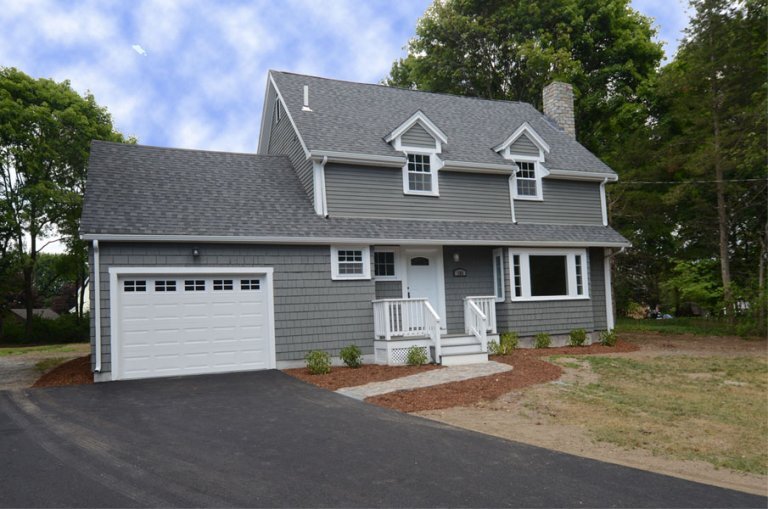
Probate is the legal process that takes place after someone passes away, ensuring that their estate is properly administered and their wishes are honored. This process is essential for validating a will (if one exists), appointing an executor to manage the estate, settling any debts and taxes, and distributing assets to the beneficiaries. While probate can seem overwhelming, especially if the estate is complex or there are disagreements among family members, it is designed to provide a clear and structured framework for settling a person’s affairs after their death. In this guide, we will walk through the key steps of probate, highlight potential challenges, and offer insights on how to navigate the process efficiently. Understanding probate is crucial whether you are the executor of an estate or a beneficiary, as it helps ensure that the deceased’s wishes are carried out according to the law.
What is a Probate?
Probate is the legal process that occurs after someone passes away, designed to validate their will (if one exists) and oversee the distribution of their estate according to their wishes. The probate process involves several key steps that ensure the estate is administered fairly, any debts are settled, and the remaining assets are distributed to beneficiaries. While probate can be a relatively simple process for estates with clear instructions and no disputes, it can become more complicated in cases where there are contested wills, unresolved debts, or complex assets involved. Here’s a breakdown of the typical steps involved in probate:
1. Validation of the Will
If the deceased left a will, the first step in the probate process is to file it with the probate court. The court’s role is to verify the authenticity of the will, ensuring that it reflects the true wishes of the deceased. This involves reviewing the document for proper signatures, confirming it was created legally, and establishing that it is the most recent version. If the will is contested, the probate court will determine its validity, which may involve resolving disputes between family members or other interested parties.
2. Appointment of an Executor
Once the will is validated, the court will appoint an executor, often named in the will. This individual is responsible for overseeing the administration of the estate. The executor’s duties include managing the deceased’s affairs, ensuring that all debts and taxes are paid, and distributing assets to the beneficiaries as per the instructions in the will. In cases where there is no will, the court appoints an administrator, usually a family member or another interested party, to perform these duties.
3. Inventorying Assets
One of the executor’s most important tasks is to identify and compile an inventory of all assets owned by the deceased. These assets may include real estate, personal belongings, bank accounts, investments, and business interests. The inventory provides a clear record of the estate’s total value and helps ensure that no assets are overlooked. It also serves as a guide to help the executor settle the estate’s debts and allocate assets to the rightful heirs. For real estate and other high-value items, appraisals may be necessary to determine their market value.
4. Settling Debts and Taxes
Before any assets can be distributed to beneficiaries, the estate must settle its debts and pay any outstanding taxes. This may involve working with creditors to pay off any liabilities, such as mortgages, credit card debt, or personal loans. Additionally, the executor will need to file any necessary tax returns for the deceased and the estate, including estate taxes, income taxes, and final income taxes for the deceased. If the estate doesn’t have enough liquid assets to cover the debts, the executor may need to sell property or other assets to fulfill these obligations.
5. Distribution of Assets
Once all debts and taxes are settled, the remaining assets can be distributed to the beneficiaries. This process follows the instructions in the will, if there is one, or according to Massachusetts intestacy laws if no will exists. Massachusetts law dictates how assets are distributed when someone dies without a will, typically prioritizing spouses, children, and other close relatives. If there are disputes over the distribution, or if beneficiaries believe the will was not followed correctly, legal challenges may arise, potentially delaying the distribution.
Challenges in the Probate Process
While probate can be a fairly straightforward process for smaller estates without complications, it can become more complex in certain situations. If there are multiple beneficiaries, if the will is contested, or if there are complex assets or large debts to address, the process can take longer and may require legal intervention. Additionally, if the estate contains real property or valuable assets, disputes may arise regarding how they are divided. In cases of disputes, beneficiaries may need to hire attorneys to resolve disagreements, which can add time and expense to the probate process.
In Massachusetts, the probate process can vary depending on the size and complexity of the estate. For smaller estates or cases with minimal disagreements, the probate process might be completed within a few months. However, larger estates or contested matters may take longer, sometimes stretching over a year or more.
Ultimately, the probate process is designed to ensure that a deceased person’s wishes are honored and that their estate is settled in an orderly manner. However, it can be a time-consuming and costly process, which is why many people choose to engage an experienced probate attorney to guide them through the complexities of managing an estate. By understanding the key steps involved in probate, you can better navigate the process and ensure the deceased’s estate is handled correctly.
Can a House Be Sold While in Probate?
Yes, a property in probate can indeed be sold! Depending on how the estate was structured at the time of the person’s passing, the sale can be initiated by three parties: the executor of the estate, who is designated in the will to oversee the distribution of assets; the administrator, who is appointed by the court in cases of intestacy when there are heirs or beneficiaries; and the court itself in intestate situations where no heirs are seeking administration. Once the executor, administrator, or court determines the rightful heirs or beneficiaries of the property, those individuals can begin the process of petitioning to sell the probate property.
What Does it Take to Sell a House in Massachusetts While in Probate?
The primary responsibility of an executor is to preserve the estate’s assets for distribution to the heirs or beneficiaries as specified in the will. However, situations can arise where the estate has significant debts owed to creditors or where the property has been neglected, resulting in back taxes owed to the government. In such cases, the executor, administrator, or court has the authority to sell the property to settle these debts, even if there are heirs involved.
For example, consider an elderly woman who passes away with an executor assigned to manage her estate. She has two heirs and, at the time of her death, has accumulated $90,000 in hospital and credit card debt. Her home is valued at $150,000, but she has no cash assets and owes $80,000 to the hospital and $10,000 in credit card debt. Despite her passing, the estate is still obligated to settle these debts. If the heirs cannot cover the debt themselves, the executor must sell the property to pay off the $90,000 in liabilities. Once the house is sold, the remaining $60,000 will be divided equally between the two heirs.
Additionally, if a person dies intestate (without a will) and has no immediate heirs, the court can order the sale of the property. In this scenario, the proceeds from the sale are distributed to the deceased’s closest relatives.
Steps for Selling a House in Probate
If you own a property in Massachusetts that is currently in probate and you’re finding it challenging to sell, there is hope! Depending on local and state laws, selling a probate property can typically be accomplished in four steps. The first step involves having an executor or administrator assigned if one was not already designated by the deceased.
If you are appointed as the executor (or if you and the executor agree on the next steps), you gain the authority to decide whether to sell the property or retain it. Whether the estate has outstanding debts or you’ve inherited a house in another state that isn’t practical to keep, you can choose to sell that property and move on. However, before you place a “For Sale” sign in the yard, it’s essential to have the property appraised. Once the appraisal is complete, you can petition the court to obtain permission to list the property for sale on your own (FSBO) with a trusted realtor experienced in probate properties or sell it directly to an investor.
Decide How to Sell the Property:

Valuation or Appraisal
The first step is determining the property’s value. To do this, you’ll need a valuation from a trusted professional, or you may consider hiring a professional appraiser who understands the local laws related to evaluating the property’s current worth. In many states, the court mandates that the property must be sold for at least 90% of its appraised value. This requirement makes it crucial to find an appraiser with experience in probate properties, ensuring they provide an accurate assessment without inflating the value of the land.

Listing the House
Once you have the appraisal in hand, you, the executor, and/or your lawyer will need to file a notice of intent to sell the house and other assets with the court. This document will include the final appraisal amount and specify your preferred method for selling the property, which may include options like auction, traditional market sale, or selling directly to an investor. Once the court approves your petition, you will be ready to list the property, notifying potential buyers that it is available for sale. Whether you decide to sell the house yourself, work with an experienced real estate agent, or sell directly to an investor, it’s essential to have someone with expertise in probate properties on your side to guide you through the process.

Offers
Regardless of whether offers come in quickly or at a slower pace, you will eventually need to decide which offer best aligns with your needs. Evaluating your goals for the sale of the property is a crucial part of this process. Do you need a swift sale to pay off the estate’s debts? Would you prefer to wait a bit longer in hopes of securing a higher profit from the sale? Or is the property in disrepair and requires a buyer who can manage a complete renovation? These are important factors to consider as you determine how and when to list a probate property.
Understanding your objectives for the sale will guide you in selecting the right offer, enabling you to move forward to the next step in the process.

Notice of Proposed Action
Once a buyer submits an offer, it’s important to inform them that the sale can only be finalized after receiving court confirmation. While disclosure laws make this requirement clear, a buyer who is inexperienced with probate transactions may hesitate due to the extended timeline involved. This potential delay is often a reason why some buyers overlook probate properties, even if they are competitively priced for a quick sale. The longer timeline may lead buyers to conclude that the wait isn’t worthwhile. However, if a buyer is willing to wait and has submitted an offer, the court will review the bid before issuing an order to approve the sale of the property.

Bidding
In the case of auctions, a probate property can be marketed as “ready to sell” even before the court finalizes the Approval to Sale. This strategy can help attract more interested bidders. Generally, the court oversees the bidding process for auction sales, and there are strict rules and guidelines that must be adhered to, which is why this method is typically considered a last resort. Once a bidder successfully wins the auction, the executor will petition the court to authorize the sale of the property. However, if any of the heirs object to the sale, it can be canceled, and the property will be put on hold while the court determines the next steps.

Finalization of Sale
Ideally, the sale of the house, condo, rental property, or piece of land will be a smooth and straightforward process. Even if you encounter a few bumps along the way, once you receive an offer that the court accepts, it’s time to finalize the sale. The executor or attorney will need to file a final accounting and petition for the final distribution of the estate. Once the court approves these documents, the title can be signed, officially completing the sale of the property.
Who Buys Houses in Probate?
We can help! We Buy Houses Mass is a direct house-buying company that has built a solid reputation for purchasing homes for cash with minimal stress and reduced fees. Contact us today to receive a competitive cash offer for your house or property that’s currently in probate. We buy homes in any condition and are here to assist you through the complex process of selling a probate property, making it faster and as stress-free as possible.
Need To Sell Your House Fast?
Mistakes to Avoid When Selling a Probate Property

Failing to Obtain Court Approval
When someone passes away, their family often seeks to sell the property quickly to allow themselves the space to grieve. In cases where the estate carries debts with accruing interest, the executor or administrator may feel pressured to sell the house promptly, sometimes pricing it below market value to cover these obligations. Additionally, if the property is in disrepair or requires significant renovations that the beneficiaries are unwilling to finance, they might undervalue it to facilitate a swift sale in its current condition.

Not Completing a Real Estate Disclosure
Depending on your state, real estate disclosure laws can be as intricate as the probate process itself. These laws require sellers to disclose specific issues—such as lead paint or asbestos—to potential buyers before the sale is finalized.
Most states mandate that sellers and their agents provide written disclosures regarding “material defects” related to the home. The National Association of Certified Home Inspectors defines material defects as any specific issue with a property’s systems or components that could significantly diminish its value or pose an unreasonable risk to occupants. It’s important to note that merely being near the end of a system’s useful life does not automatically classify it as a material defect.
While experienced real estate agents are adept at navigating these complex regulations, what happens if you inherit a property you’ve never lived in? In some states, the executor, the person selling the property, or the real estate agent may be exempt from completing local real estate disclosure forms when the property is in probate. This exemption typically arises because the seller lacks firsthand knowledge of the property and therefore cannot provide accurate disclosures.
If you’re uncertain about the disclosure laws in your state, consulting with someone experienced in probate real estate—such as a real estate agent or an investor who has previously purchased probate properties—can provide valuable guidance. If you choose to explore the investor route, look for an experienced investor willing to buy probate properties and accept the risks associated with purchasing from someone unable to provide complete disclosures. You do have options!

Failing to Hire a Lawyer
We cannot stress this enough: having a knowledgeable real estate lawyer with experience in probate can significantly simplify and expedite the probate process compared to handling it alone. An experienced attorney will not only understand how to petition the court to get your property listed for sale but will also guide you through the legal steps necessary to sell an unwanted house or property with minimal hassle and emotional strain. Even a consultation can help you identify any blind spots in the probate process, ensuring that you navigate this challenging time with confidence and clarity.

Waiting Too Long to Start the Probate Process
When someone loses a loved one, the grieving process can lead us to put many aspects of our lives on hold as we navigate the loss. However, it’s important to consider what happens to the probate property during this time. Property taxes continue to accrue, utility bills keep arriving, and the mortgage lender will expect monthly payments until the estate is settled. Delaying the sale or management of the property for too long can result in mounting expenses, which may deplete the estate’s assets and leave you in a challenging financial
Who Buys Houses in Probate?
We do! We Buy Houses Mass is a direct house buying company that has built our reputation on buying houses for cash with less stress and less fees. Contact us today and get a competitive cash offer for that house or property that’s stuck in probate. We buy homes in any condition. We can help you with the convoluted process of selling a house in probate, making the process faster and as stress-free as possible.

